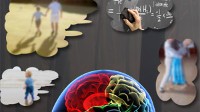Caregivers, and healthcare professionals, here is some great information
Here is a great dementia resource for caregivers and healthcare professinals,
Your residents will love the Amazon Kindle Fire
Here is information on being the best caregiver you can be
Here is a way for nurses administrators, social workers and other health care professionals to get an easyceu or two
Follow alzheimersideas on twitter
The Dementia Caregiver's Little Book of Hope [Kindle Edition
ABC News
Doctors Criticize IViG Study Results
Still, treatment is not advised for patients who have had a major stroke or heart attack, because it can increase the risk of vascular events.
IVIG may not just be a therapy that treats symptoms, according to Dr. Richard Caselli, a neurologist at the Mayo Clinic. The drug seems to block the "destructive process" of inflammation mechanisms in the brain.
"Its strength and therefore importance is that it seems to show a stabilizing effect over a sustained period of time," he said. "Its weakness as the authors state is the small number of patients as well as its unblinded open label format."
But Dr. Normal Foster at the Center for Alzheimer's Care, Imaging and Research at the University of Utah, said the selective reporting of the study's results are "suspicious."
"Not everyone who received treatment was included in the analysis," he said. "The results are intriguing, and I can see why they might want to share them, but they can't be relied upon."
Dr. James E. Galvin, director of the the Pearl Barlow Center for Memory Evaluation and Treatment at New York University's Langone Medical Center, said there may be "technical and logistical limitations" in how many patients might obtain the drug.
Natural Alzheimer's Remedies?Watch Video
Getting Alzheimer's Candidate to Doctor? Watch Video
Welcome to OnCall+ Alzheimer'sWatch Video
But Dr. Sam Gandy, director of Mount Sinai Center for Cognitive Health, said the study, though small, is "still good news, indeed."
He, like other experts, said more studies were needed to prove the drug's promise.
Marder showed no symptoms of the disease in his speech, memory or mood when interviewed by ABCNews.com. He said he first began noticing he was having trouble with his memory a decade ago.
"I thought it was all part of aging," he said.
After a series of tests with a neurologist that were inconclusive, he was preventively put on the drug Aricept. But within a matter of months, an official diagnosis of Alzheimer's disease was made.
"I was devastated," he said. "It blows you away."
As his confusion and forgetfulness worsened, Marder was put on Namenda, as well as Aricept, both of which he has continued for nine years.
Every six months Relkin puts Marder through a series of cognitive tests and so far, the decline has been minimal.
But now, the Marders worry that they may not get the drug if it does not get FDA approval when phase III clinical trials end next year.
And it's expensive – estimated to cost a patient $2,000 to $5,000 every two weeks, including the drug, equipment and a nurse to administer it.
Relkin has told the Marders there were other drugs, but Marder said, "I just want them to keep going."
Marder continues to play tennis and can ride his bike up the 11-mile stretch from Battery Park to the George Washington Bridge -- and back.
"He still has memory issues, no question," said his wife. He tends to repeat himself, but the drug has kept him stable. "There's no doubt he has Alzheimer's, but we would have expected him to progress downward by now."
Luckily, Marder has the self-awareness to know what the drug has done for him.
"It's heaven," he said. "I don't know where I could have been without it.





No comments:
Post a Comment